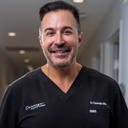Undergoing surgery for a tummy tuck (abdominoplasty) when you have a fatty liver requires careful consideration and coordination between you, your surgeon, and your healthcare providers. Here are important points to consider:











